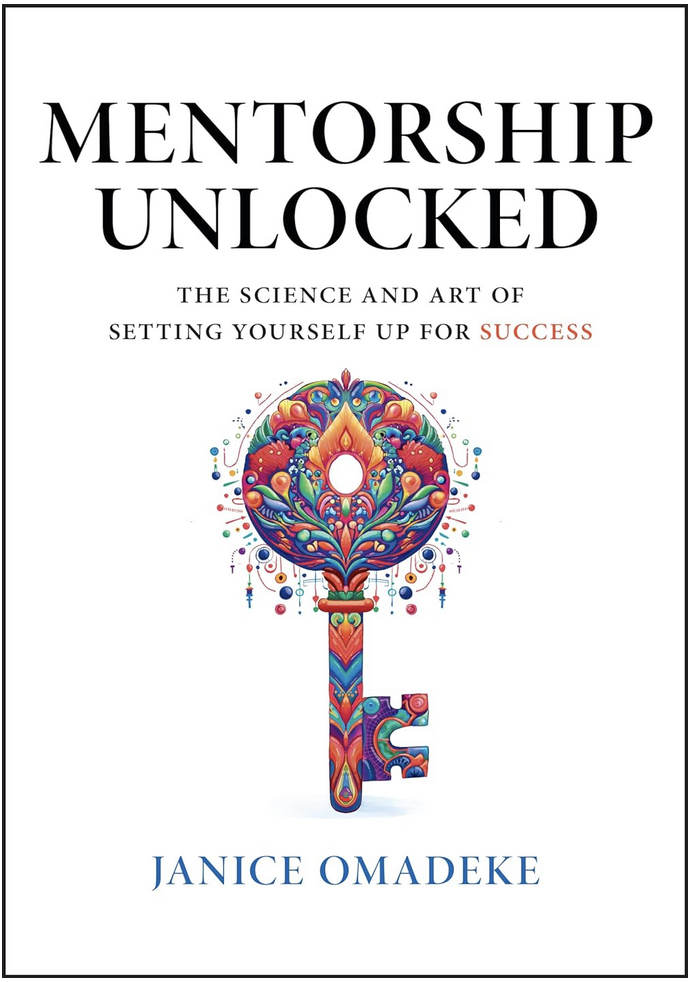Before drafting your mentorship invitation, take a moment to reflect on why you’re drawn to this specific individual as a potential mentor. Mentorship is not solely about gaining or refining skills; it’s about building a connection with someone who resonates with your aspirations and values.
It may be helpful to review any notes that you took over your previous conversations and update it with any new information you’ve learned. Start by reflecting on what specifically draws you to them — is it their career trajectory, their values, their expertise or their accomplishments? Think about common interests, experiences or viewpoints that create a genuine human connection.
Tips for Handling Rejection From a Potential Mentor
- Don’t take it personally.
- Let them know you understand their decision.
- Keep it positive.
- Ask for feedback.
- Keep the communication line open.
- Thank them for their time.
How to Write an Email to a Potential Mentor
Once you’ve processed this information, it’s time to compose an email inviting the potential mentor to discuss the prospect of working together. Craft your email to maintain a professional, concise and clear tone, focusing on setting up a meeting rather than directly requesting mentorship.
Outreach Template for Asking to Schedule Your Conversation
Hello [name],
[Greeting such as “I hope you had a great weekend,” “How was your son’s birthday party?” or “How is your week going so far?”]. I’ve genuinely enjoyed our conversations and the insights into your career. As you’re aware, I’ve been actively seeking a mentor with your impressive skill set, specifically [one to three focus areas here; one short sentence or phrase each]. I’m interested in the prospect of exploring potential collaboration further and sharing my vision for a collective effort. Could we schedule a conversation in the upcoming weeks to discuss this in more detail? Your input would be invaluable. If you’re interested, please let me know your availability, and I’ll send a calendar invitation.
Thank you for considering this, and I’m looking forward to the possibility of connecting.
Best regards,
[Your name]
How to Structure Your Mentor Invitation Meeting
If the person you reach out to is interested in continuing the conversation, use the following outline to conduct an organized and collaborative meeting with them. The goal of this meeting is to confirm whether they’re available and interested in serving as your mentor, align on your initial goals and confirm their bandwidth to join you on your journey.
Explain Why You Want Them as a Mentor
The foundation of any successful mentorship relationship lies in the authenticity of your connection with your potential mentor. Mentors are more likely to invest their time and knowledge in someone who appreciates their unique qualities. Personalize your approach to show that you’ve done your homework and genuinely admire what they bring to the table.
Begin your request by expressing your genuine admiration for their achievements, expertise and the impact they’ve made in their field. Highlight specific qualities or accomplishments that resonate with you. This personal touch demonstrates that your interest is rooted in a deep appreciation for their contributions, setting the stage for a meaningful mentorship journey.
Clearly list the skills or strengths they possess that you want to focus on within your career. Keep it to one to three brief bullets when writing down your talking points.
Clearly Define Your Goals
Your mentorship invitation should clearly outline your goals and what you aspire to achieve through the guidance of your potential mentor. Clearly articulate what you hope to achieve through mentorship with them specifically.
Whether it’s acquiring new skills, gaining industry insights or refining your career goals, your potential mentor should understand what’s in it for them as well. Clarifying your objectives not only demonstrates your commitment but also helps potential mentors understand how they can contribute effectively to your growth. Share how achieving these goals aligns with your overall career trajectory and long-term ambitions.
Template
Throughout my career, I’ve aspired to [describe your career goals or aspirations], and your journey resonates deeply with my own path. Your ability to [mention a relevant skill or accomplishment] aligns perfectly with my pursuit of [your goal]. I believe that learning from your experiences would help me grow and bring me closer to achieving [your career objective].
Define the Time Commitment
The biggest consideration for mentors entering into a mentor relationship is time. This is especially true for women who consider becoming mentors — 75 percent say the time commitment is their biggest concern, with subject matter expertise (54 percent), and their relation to the mentee (also 54 percent) the second and third concerns, respectively. With time constraints being such a big factor, it is important to emphasize the time commitment up front to ensure you’re on the same page.
In your conversation, be transparent about the time commitment you’re seeking from them. It’s helpful to propose a realistic frequency of interactions, whether it’s a monthly meeting, biweekly check-ins or occasional coffee chats. Emphasize your commitment to valuing their time and that you are open to their suggestions for structuring the mentorship schedule. Setting clear expectations up front helps both you and your mentor manage time effectively.
Be prepared to accommodate their availability. Showing consideration for their schedule demonstrates your professionalism and commitment to making the mentorship valuable for both parties.
Pause 1: Confirm Their Interest in Mentorship
Conversations are most fruitful when they’re two-way streets. Take a moment to seek feedback from your potential mentor regarding the information you’ve provided.
This proactive step not only ensures you’re investing your time effectively but also allows you to confirm their interest in moving forward before going into an extensive dialogue. Gauge their curiosity and availability for mentorship based on the details you’ve shared earlier. If they express interest in further exploration, proceed with the following steps.
Chart Your Mentorship Path
Provide a structured plan of how you envision the mentorship unfolding. Consider a timeline, for example one to two months, with clear phases that outline the steps you intend to take.
Detail the key milestones, objectives and activities you intend to accomplish during each phase. Your outline provides a clear road map that guides the mentorship toward achieving concrete outcomes.
Pause 2: Get Feedback on Your Approach
With their expressed interest in mentoring, the next step is to ensure alignment regarding the specifics of your collaboration. This initial alignment lays the foundation for the frequency and nature of your interactions, confirming whether their expertise aligns with your needs and objectives.
It also initiates the learning process, benefiting from their experience to fine-tune your approach. By seeking feedback and clarifying expectations, you can optimize your mentorship engagement and create a strong starting point for your partnership.
Handling If They Say No
If a potential mentor declines your invitation, it’s important to handle the situation with composure and professionalism. Here’s how you can navigate this situation.
Do Not Take it Personally
This is not a reflection of you, your career trajectory or your ability to be mentored.

Express Understanding
Thank them for taking the time to consider your request, and express your understanding of their decision.
Stay Positive
Maintain a positive and gracious tone in your response. Avoid sounding disappointed or discouraged, as this is a natural part of the mentorship process.
Seek Feedback
Politely ask for feedback on their decision. This can provide valuable insights into their reasons and help you improve your approach in the future.
Keep the Door Open
Express your openness to any future opportunities for collaboration, networking or even occasional advice. This shows your professionalism and willingness to maintain a positive connection.
Thank Them Again
Conclude your response by thanking them once more for their time and consideration. This leaves a positive impression and ensures the door is left open for potential interactions down the road.
Excerpted with permission from the publisher, Wiley, from Mentorship Unlocked by Janice Omadeke. Copyright © 2024 by Janice Omadeke. All rights reserved. This book is available wherever books are sold.





